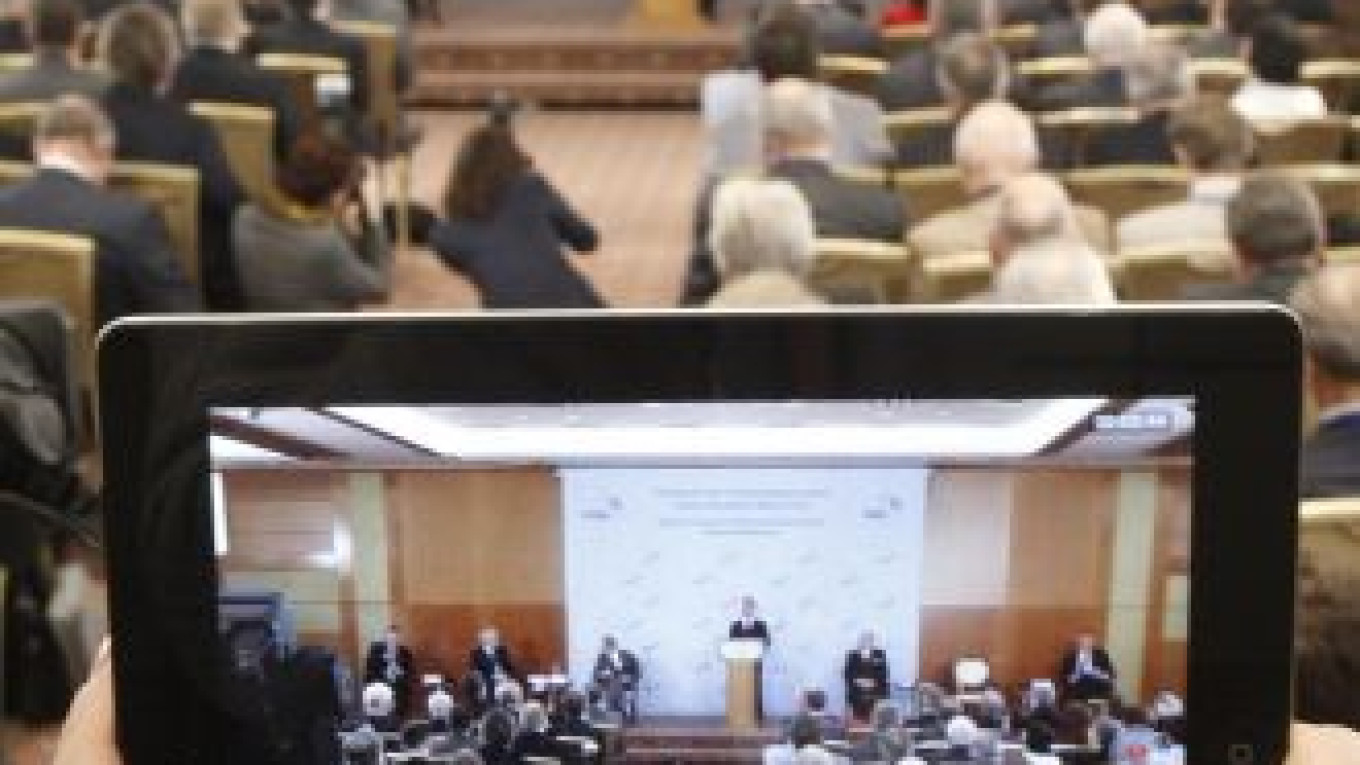President Dmitry Medvedev said Friday that time is running out for the West to secure Russia's agreement to a missile defense shield in Europe.
"No one has explained to me why we should believe that the new missile defense system in Europe isn't directed against us," Medvedev said at a security conference.
Medvedev is unconvinced by NATO's argument that the shield is intended as protection against a missile attack by countries such as Iran.
NATO has said it wants to cooperate with Russia on the missile shield, but it has rejected Moscow's proposal to run it jointly.
"I will say honestly that no matter how warm relations between me and my colleagues are, no matter how advanced relations between Russia and NATO member states are, we will have to take that into account and, under certain circumstances, respond," Medvedev said.
"The main thing is that we must hear one simple thing, hear it and receive confirmation: 'Respected friends from Russia, our missile defense is not aimed against Russian nuclear forces.' This must be affirmed not in a friendly chat over a cup of tea or a glass of wine but in a document."
Deputy Prime Minister Dmitry Rogozin was more hawkish in his remarks at the conference, saying the NATO shield has an "openly anti-Russian vector."
"Missile defense isn't the best way to ensure security," he added. "Those who are smart know that the defensive arms race is no better than the offensive arms race. Strengthening of the shield entails strengthening of the sword."
Rogozin also said the new Russian missiles have been fitted with systems that would allow them to penetrate any prospective missile defense.
Some experts and U.S. officials say Russia is overplaying any potential threat.
Former U.S. Defense Secretary William Perry backed up Rogozin's remarks, saying he believes the Russians could penetrate any ballistic missile defense the United States might build.
He added, "It is a major, major tragedy that Russian concerns about U.S. ballistic missile defense have had such a corrosive effect on U.S.-Russian relations."
(Reuters, AP)
A Message from The Moscow Times:
Dear readers,
We are facing unprecedented challenges. Russia's Prosecutor General's Office has designated The Moscow Times as an "undesirable" organization, criminalizing our work and putting our staff at risk of prosecution. This follows our earlier unjust labeling as a "foreign agent."
These actions are direct attempts to silence independent journalism in Russia. The authorities claim our work "discredits the decisions of the Russian leadership." We see things differently: we strive to provide accurate, unbiased reporting on Russia.
We, the journalists of The Moscow Times, refuse to be silenced. But to continue our work, we need your help.
Your support, no matter how small, makes a world of difference. If you can, please support us monthly starting from just $2. It's quick to set up, and every contribution makes a significant impact.
By supporting The Moscow Times, you're defending open, independent journalism in the face of repression. Thank you for standing with us.
Remind me later.


